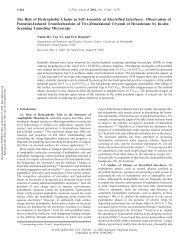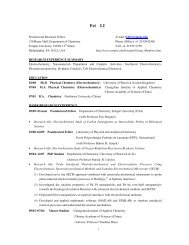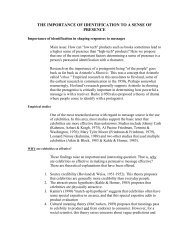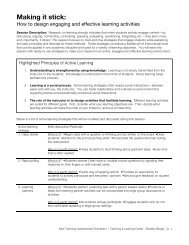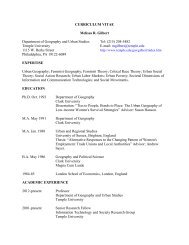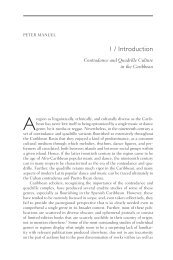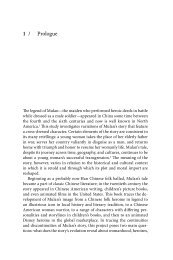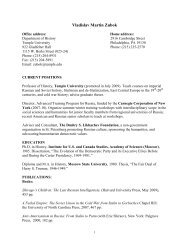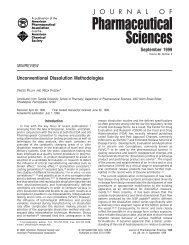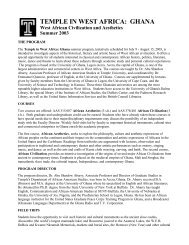This Country Must Change: Essays on the ... - Temple University
This Country Must Change: Essays on the ... - Temple University
This Country Must Change: Essays on the ... - Temple University
Create successful ePaper yourself
Turn your PDF publications into a flip-book with our unique Google optimized e-Paper software.
audience that is not already involved in social movements or that has not already read radical<br />
literature will draw <strong>the</strong>se c<strong>on</strong>necti<strong>on</strong>s as well as <strong>the</strong>y might if <strong>the</strong> chapters were organized in any<br />
sort of coherent way. Ideally, <strong>the</strong> editor would have not <strong>on</strong>ly organized <strong>the</strong> chapters better, but<br />
could have also included an introductory and c<strong>on</strong>cluding piece to each “secti<strong>on</strong>” that would help<br />
draw <strong>the</strong>se c<strong>on</strong>necti<strong>on</strong>s and helped to fur<strong>the</strong>r develop <strong>the</strong> praxis-oriented approach <strong>the</strong> book<br />
seems to aim for. Especially c<strong>on</strong>sidering <strong>the</strong> books laudable goal of reaching those who “have<br />
yet to become involved but realize something is wr<strong>on</strong>g in this society” (4), which seems to be an<br />
increasing number of disillusi<strong>on</strong>ed Americans, if <strong>the</strong> polls can tell us anything, this kind of<br />
organizati<strong>on</strong> would have been particularly beneficial.<br />
I am also left w<strong>on</strong>dering why <strong>the</strong> book limits its focus to <strong>the</strong> United States of America. It<br />
seems likely that any coming revoluti<strong>on</strong> would have to shift its focus away from <strong>the</strong> isolati<strong>on</strong>ist<br />
principle of any given nati<strong>on</strong>-state (an outdated c<strong>on</strong>cept, if ever <strong>the</strong>re was <strong>on</strong>e) to a global shift<br />
of justice for all. Some chapters in <strong>the</strong> book makes it obvious that past principles of radical<br />
change are outdated in its calls for a revoluti<strong>on</strong> that is not anthropocentric, meaning that some<br />
authors recognize that a new revoluti<strong>on</strong> must be for all and not just for humans, and yet <strong>the</strong><br />
books stated focus is to emphasize <strong>the</strong> necessity for change in <strong>the</strong> USA. Though arguably this is<br />
where change is most necessary due to <strong>the</strong> massive impact of <strong>the</strong> United States <strong>on</strong> <strong>the</strong> rest of <strong>the</strong><br />
world, our now global society needs global change that does not emphasize <strong>the</strong> needs of <strong>on</strong>e<br />
imagined community of arbitrarily selected individuals over ano<strong>the</strong>r. If <strong>the</strong> authors want us to<br />
believe that we should move bey<strong>on</strong>d anthropocentric revoluti<strong>on</strong>ary principles, why not move<br />
past American and Western-centric <strong>on</strong>es as well? The first full chapter in <strong>the</strong> book, Jalil A.<br />
Muntaqim’s “Towards a New Amerikan Revoluti<strong>on</strong>” argues that America cannot be reformed<br />
without revoluti<strong>on</strong>, stating that a new revoluti<strong>on</strong>ary struggle will “depend <strong>on</strong> oppressed peoples



